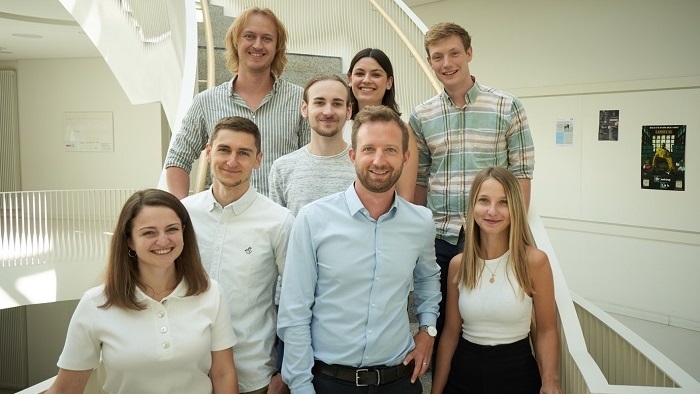New paths for cancer therapy
With his International Junior Research Group "Local immune control of cancer within the tumor microenvironment", Dr. Jan Böttcher and his team at the Klinikum recht der Isar of the Technical University on Munich are researching new strategies for the successful immunotherapy of cancer patients. Recently, the group achieved a remarkable research success.

Dendritic cells are an essential part of our immune system and are able to organise immune responses against viral infections and cancers. In tumours, however, these cells are often dysfunctional, limiting their ability to organise effective anti-cancer immunity and tumor control. The International Junior Research Group of Dr. Jan Böttcher has now uncovered a previously unknown mechanism by which dendritic cells are switched off in tumour tissue. This is mediated by the bioactive lipid prostaglandin E2 (PGE2) produced by tumour cells, whereby dendritic cells are reprogrammed locally in the tumour and can no longer communicate with so-called tumour-infiltrating cytotoxic T cells. Furthermore, Dr Böttcher's research group was able to demonstrate that this inhibitory mechanism can be reversed by blocking PGE2 receptors on the surface of dendritic cells, thereby enabling an improved immune response against the tumour. These findings point to new avenues for the development of better immunotherapies to fight cancer.
The original publication can be viewed online: Bayerl F., Meiser P., Donakonda S., Hirschberger A., Lacher S., Pedde A.M., Hermann C.D., Knolle M., Rudolph T.J., Grassmann S., Öllinger R., Kirchhammer N., Trefny M., Elewaut A., Anton M., Wohlleber D., Höchst B., Zaremba A., Krüger A., Rad R., Obenauf A.C., Schadendorf D., Zippelius A., Buchholz V.R., Schraml B.U. and Böttcher J.P. (2023).Tumor-derived PGE2 programs cDC1 dysfunction to impair intratumoral orchestration of anti-cancer T cell responses. Immunity. DOI: 10.1016/j.immuni.2023.05.011
Text: Dr. Jan Böttcher

